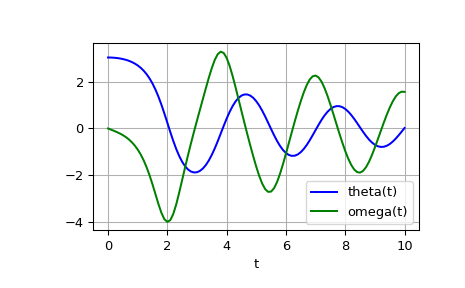

- #Scipy constants how to
- #Scipy constants install
- #Scipy constants software
- #Scipy constants download

The _sconstants provides the following list of physical constants.

The nstant provides the following list of mathematical constants. Now let us see the list of constants that are included in this subpackage. Finally, we use the kmeans functions and pass it the data and number of clustered we want. Whitening normalizes the data and is an essential step before using k-means clustering. After joining both these sets, we whiten the data. In the below implementation, we have used NumPy to generate two sets of random points. The k-means algorithm adjusts the classification of the observations into clusters and updates the cluster centroids until the position of the centroids is stable over successive iterations.
#Scipy constants how to
Here we will see how to implement the K-means clustering algorithm which is one of the popular clustering algorithms. There are two types of the cluster, which are: Each group which is formed from clustering is known as a cluster. It represents physical and mathematical constants.Ĭlustering is the task of dividing the population or data points into a number of groups such that data points in the same groups are more similar to other data points in the same group and dissimilar to the data points in other groups.

The following table shows some of the modules or sub-packages that can be used for computing: Sr.Ĭluster algorithms are used to vector quantization/ Kmeans.
#Scipy constants software
Many dedicated software tools are necessary for Python scientific computing, and SciPy is one such tool or library offering many Python modules that we can work with in order to perform complex operations.
#Scipy constants install
But keep in mind that it has incomplete coverage of the SciPy ecosystem:īrew install numpy scipy ipython jupyter Sub packages in SciPy sudo port install p圓5-numpy p圓5-scipy p圓5-matplotlib p圓5-ipython +notebook p圓5-pandas p圓5-sympy p圓5-noseĪlso, you can use Homebrew to install these packages.
#Scipy constants download
Run the following commands in the terminal it will download the SciPy as well as matplotlib, pandas, NumPy. The mac doesn’t have the preinstall package manager, but you can install various popular package managers. First, we need to download the Anaconda navigator and then open the anaconda prompt type the following command: conda install -c anaconda scipy Install on Mac We can also install SciPy packages by using Anaconda. To install, run the following command in the terminal: pip install scipy It is a standard package manager which can be installed in most of the operating systems. Pip is basically a recursive acronym which stands for ‘Pip Installs Packages’. We can install the SciPy library by using the pip command. Here are a few methods that can be used to install SciPy on Windows or Linux. As mentioned earlier, SciPy builds on NumPy and therefore if you import SciPy, there is no need to import NumPy.īefore learning more about the core functionality of SciPy, it should be installed in the system. It adds significant power to the interactive Python session by providing the user with high-level commands and classes for manipulating and visualizing data. It is a collection of mathematical algorithms and convenience functions built on the NumPy extension of Python. SciPy is a free and open-source Python library used for scientific computing and technical computing. Also, we are going to go through the different modules or sub-packages present in the SciPy package and see how they are used. In this tutorial, we are going to start from scratch and see how to use Instal SciPy and introduce you with some of its most important features.


 0 kommentar(er)
0 kommentar(er)
